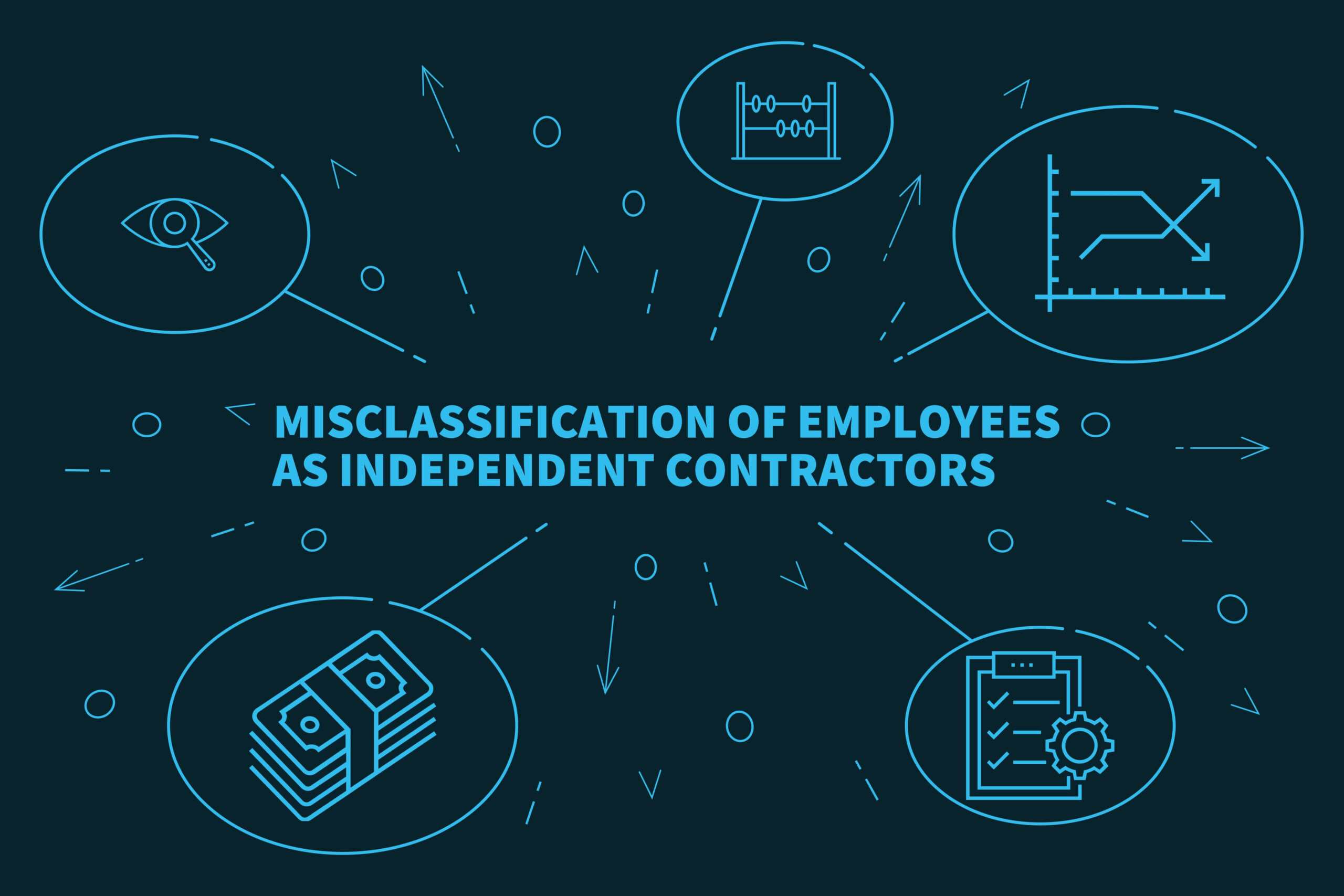Certain federal requirements such as minimum wage and overtime pay under the Fair Labor Standards Act (FLSA) only apply to workers who are considered covered employees. Independent contractors are not considered employees and are not covered by the FLSA.
On October 11, 2022, the United States Department of Labor (DOL) announced that it was modifying the rules for determining whether a worker is an employee or an independent contractor under federal law.
If you are currently classified as an independent contractor, this rule change may cause a change in your classification status. Regardless of the updates, it is important to understand that companies often misclassify employees as independent contractors. Doing so allows companies to avoid paying benefits, such as overtime wages, to individuals who would for all intents and purposes be properly classified as employees. An employer’s label or classification may be challenged by individuals who have been classified as independent contractors. If you believe that you have been misclassified as an independent contractor and should be receiving minimum wage, overtime pay, or another benefit under federal or state law, speaking with an experienced employee misclassification lawyer will help you understand your rights and outline what actions you can take to protect them.
Independent Contractor vs. Employee
As mentioned, certain federal laws such as minimum wage and overtime pay only apply to covered employees, not independent contractors. Unfortunately, many employers will often misclassify their workers in order to avoid paying overtime or a minimum wage (or even other benefits). The Department of Labor has established 6 factors that determine whether a worker should be considered an employee or an independent contractor:
- Does the worker exercise managerial skill, such as by negotiating their pay for work done, by being able to accept or decline jobs, and whether the worker is able to hire others?
- Has the worker made investments into their occupation that go beyond costs that are necessary to perform specific jobs, such as tools?
- Is the work relationship between the employer and the worker continuous, or is it only occasional or project-based?
- The amount of control the employer has over the performance of the work, such as whether the employer sets work schedules, supervises work, or limits the ability of workers to complete jobs for others.
- Is the work being performed an integral part of the employer’s business?
- Does the worker use specialized skills to perform the work or are they dependent on training?
Applying these 6 factors to determine whether you are properly classified as either an employee or an independent contractor can be difficult. If you believe that some or all of these factors applies to you, it is important that you contact an employment misclassification attorney today to better understand how these factors are applies and how they may affect your status.
New Department of Labor Rule
Under the old rule created by the DOL in January 2021, the most important factors for determining whether a worker was an employee, or an independent contractor were the nature and degree of control over the work performed and the worker’s opportunity for profit or loss.
The new rule from the DOL issued in October 2022 will address the inconsistencies created by the 2021 rule and may make it easier for those who are classified as independent contractors to be properly classified as employees consistent with substantial prior precedent. The new rule will state that each of the 6 factors described above will have equal weight when determining the proper classification, rather than one factor being more important than any other. This will allow courts to examine many aspects of a worker’s job environment and responsibilities when determining their proper classification. The “new rule” also addresses various aspects of the 2021 rule that were inconsistent with prior precedent from various courts. In the short time that the 2021 was in effect, it was successfully challenged in various federal courts.
Schedule a Consultation with a Columbus Ohio Misclassification Lawyer Today
Misclassification issues can be incredibly complex and understanding and applying the six factors outlined above can be a challenge. At Coffman Legal, our experienced misclassification attorneys will listen to your story, answer any questions you may have, and provide you with a thoughtful analysis of any potential legal claims you may have. Our consultations are completely free and entirely confidential. To speak with one of our Ohio misclassification lawyers today, please call 614-949-1181.





